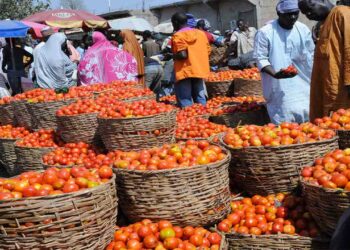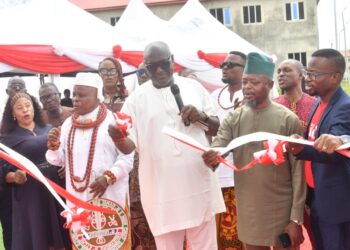The director-general of the National Automotive Design and Development Council (NADDC), Mr. Joseph Osanipin, has called for renewed collective action to grow Nigeria’s automotive sector through local content development, declaring it a national economic imperative.
Speaking through deputy director Felicia Oyebolu at the 2nd edition of the Nigeria Auto Industry Summit (NAISU) held in Lagos, Osanipin emphasised that prioritising local production is vital for economic sustainability. Themed: “Nigeria First: Local Content as Catalyst for Automotive Economy,” the summit highlighted the urgent need to reduce reliance on imported vehicles and components.
“This is not just a slogan,” Osanipin said. “It is a strategic blueprint for sustainable economic growth and a testament to our nation’s potential.”
He stressed that developing local capacity in the automotive sector would drive economic diversification, boost job creation, retain capital within the country, and stimulate technological advancement. According to him, a strong local supply chain would enhance resilience against global disruptions and currency volatility.
However, Osanipin acknowledged that challenges persist. These include limited access to finance for manufacturers, inadequate power supply, and an underdeveloped industrial base for processing raw materials. He urged stakeholders across government, industry, finance, and academia to collaborate in addressing these constraints.
“We must collectively address these challenges,” he said. “Let us invest in local capabilities, champion innovation, and advocate for supportive policies.”
Calling for a renewed commitment to the “Nigeria First” agenda, the NADDC boss reiterated that prioritising local content goes beyond manufacturing—it is about building a robust economy and securing the future of the nation.
Key initiatives championed by the NADDC in partnership with the Nigeria Association of Automotive Manufacturers (NAMA) and the African Association of Automotive Manufacturers (AAAM) include: incentivising local production through favorable policy frameworks; promoting research and development using indigenous materials; investing in human capital through technical training, and collaborating with regulatory bodies like the Standards Organisation of Nigeria (SON) to ensure high product quality.
The summit, organised by the Nigeria Auto Journalists Association (NAJA), is expected to produce actionable strategies and foster partnerships aimed at transforming the automotive industry into a key driver of Nigeria’s industrialisation.




